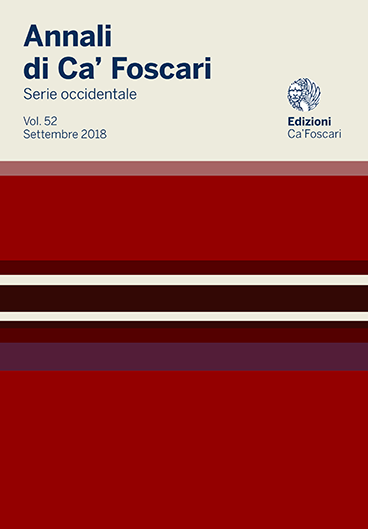
- search 268 views
- file_download 21 download
- keyboard_capslock metadata
-
mark_email_readIscriviti alla newsletter
Von der Macht der Worte und der Gewalttätigkeit des Dichters
Zur Erzeugung virtueller Realität im 18. Jahrhundert
abstract
This article argues that literature in the 18th century evolved as an instrument to dynamize the relationship between reality and fiction: it creates what in the 20th/21st century is called virtuality, although this has always been associated with digital or other imaging methods. The contribution traces contemporary arguments underlining that language is superior to images in generating the virtual. It further shows how, in the age of Sensibility, mediatic and medical concerns were connected to the new aesthetics of illusion building, and how classical and romantic texts programmatically faced these concerns. They used, each in a different way, the transcendent power of words, in order to shape both the psyche and the body of their readers. The discovery and mastery of the virtual, therefore, was not only the central component for the contemporary educational project, but also served the idea of a health policy.
Keywords: Illusionary aesthetics • Classical and romantic • Literature as medium • Education • Effect of the real • Enérgeia • Sensitivity • Affective excitement



